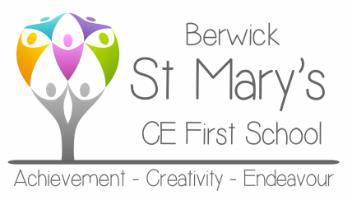‘So encourage each other and build each other up.’
Thessalonians 5:11
Our PE lead is Miss Murray.
Through our P.E. curriculum we aspire for our children to have the confidence and ability to successfully use and adapt the skills, attitudes and knowledge required to meet the challenges for healthy engagement in life-long physical activity. We aim to develop their communication, cooperation and collaboration skills, understanding fairness to embed life-long core values.
Our carefully sequenced approach to learning from Nursery to Year 4, aims to develop physical competence in a broad range of physical activities. The core principles of agility, balance and co-ordination will allow them to transfer their skills actions, rhythms, patterns of movement and tactics across different physical activities, sports and environments, including competitive sports and activities. Therefore, providing our children with the foundation for leading healthy and active lifestyles and supporting physical and emotional wellbeing.
All children receive two lessons of physical education a week. Lessons are delivered either by class teachers or specialist PE coaches, who have expert subject knowledge and are extensively trained in the areas of the curriculum they teach. In addition, this enables to us to extend our provision further, for example, different types of dance. Within our PE lessons we aim to:
- follow a sequential, developmental curriculum that progressively builds on past experiences and incorporates new experiences when the children are ready.
- planned lessons building on previous learning, they aim to keep pupils active while developing their skills as well as core sports values.
Our PE provision is detailed here.
- Physical Education teaching is detailed in our half termly curriculum maps.
- National Curriculum Programme of Study that we follow for Physical Education.
The national curriculum for physical education aims to ensure that all pupils:
- develop competence to excel in a broad range of physical activities
- are physically active for sustained periods of time
- engage in competitive sports and activities
- lead healthy, active lives.
Children will be given the opportunity to compete against themselves in achieving their personal best and to compete against others within school and those within the wider community, thus developing resilience and children who desire to succeed.
Strong links are made with the science curriculum to enable pupils to understand the importance of exercise for our bodies and the impact of physical activity on our long term health and fitness. Sportsmanship shares links with our PSHE curriculum and our Christian Core Values. Our provision includes other physical activities to promote fitness and wellbeing, such as yoga.
Physical Education at St Mary's:
Early Years
In Early Years the children experiment with different ways of moving, learning to adjust speed or change direction to avoid obstacles and learning to travel with confidence, negotiating balancing and climbing equipment. They learn how to use equipment with increasing control, including pushing, patting, throwing, catching or kicking an object or ball.
Key Stage 1
In Key Stage 1, our aim is for pupils to develop the fundamental movement skills of agility, balance and coordination and apply these in a range of activities. They will engage in competitive activities, not only challenging themselves to improve their personal best but also to beat others in competitions. Through team games, they will learn simple tactics for attacking and defending.
Key Stage 2
In Key Stage 2, the children develop a broader range of skills, learning how to apply them in a range of contexts. More specific competitive games and sports are introduced e.g. hockey, tennis, cricket etc. adapted where appropriate to the needs of the children. Pupils develop their creative skills whilst continually improving their strength, flexibility, control and balance.
Outdoor Learning
Outdoor and adventurous activities as well as Forest School activities, are not only an integral part of the KS2 curriculum but delivered from Early Years to Year 4. The children from all year groups collaborate on a range of problem solving activities and challenges enabling pupils to work both individually and within a team. In addition, this provides an opportunity for the children in Year 4 to develop and demonstrate their leadership skills in a range of contexts.
School Games
The School Games, which is funded by Sport England National Lottery funding and delivered by the Youth Sport Trust, is a government led programme designed to deliver competitive school sport to all young people. Where possible the children attend inter school festivals and competitions within the Berwick partnership of schools providing an opportunity to compete with other children and achieve their personal best. Where teams are successful in winning tournaments, they progress to competitions at county level, the ‘Northumberland School Games’.
Sports Leaders
In Year 4, pupils have the opportunity to further develop their leadership skills as sports leaders. After training, the Year 4s lead physical activities with the younger children at lunch time breaks, thus encouraging other pupils to become more active while still developing their own leadership abilities.




